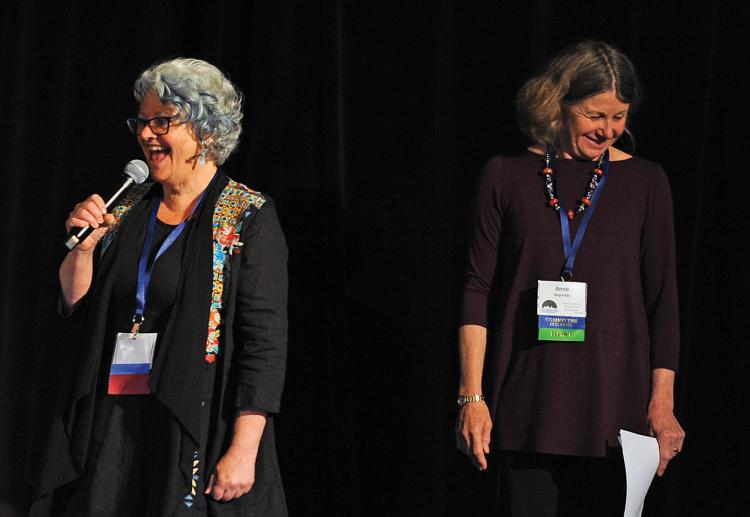Past, Present, and Future

Co-op milestones are given recognition and celebrated at the June conference reported in this issue. We note ten-year anniversaries of retail food co-ops and key allies, along with new co-ops opened during the past year. This year’s list highlights co-ops ranging in age from 1 to 100 years. Congratulations to each of these cooperative communities!
Legacies: all of us working in cooperatives have benefited from major accomplishments of prior generations—including examples of thriving and evolving enterprise, along with beneficial state and federal laws and policies. Especially during the present era of turmoil and budget cutbacks, we should critically support and seek leadership from the National Cooperative Business Association (NCBA).
NCBA and its international cooperative development arm, CLUSA, reached age 100 in 2016—see ncbaclusa100.coop. Additionally, the International Cooperative Alliance (ICA), established over 120 years ago, continues to articulate the principles and aspirations of the largest secular movement in the world—find inspiring co-op reports from around the globe at ica.coop.
NCBA also nurtured the annual food co-op conference, and its theme of “cooperate to differentiate” is both an expression of market strategy and a broad outlook on our economic life.
Age may mean little in the present environment, when short-term survival is at stake for some food co-ops, and long-term survival is at stake for every co-op. Surviving and thriving in a highly competitive market requires that cooperatives not only find and keep customers and member-owners. It also calls for a high level of transparency and effective internal communications. Being adaptive is a crucial organizational and personal element in ensuring a future of thriving cooperative societies and enterprise.
As always, reports of evolving organizational practices and shared co-op improvements appear in these pages. Additional recognition is given to the recipients of annual co-op excellence awards, included in the report of conference proceedings—more great examples!
National Co+op Grocers (NCG) now offers an expanding set of publications that summarize current preferred practices to help food co-ops strengthen their operations. In a separate contribution, Karen Zimbelman of NCG pays tribute to Nancy Casady, an admired co-op manager who is stepping down—but only after one more co-op expansion project.
Cooperative Grocer Network (CGN) continues its sharing of food co-op resources and conversations through this magazine and at grocer.coop. Ellen Michel describes a new dues structure and CGN’s upcoming annual meeting and board election.
Sarah Dahl examines how co-ops are held back by poor internal communication among staff and offers suggestions aimed at achieving continuous improvement in communications—measures that also are likely to strengthen a co-op’s numerous positive impacts.
Let’s acknowledge that conflict is not merely inevitable—it is a necessary element of democracy and social change. Art Sherwood focuses on co-ops’ ability to handle conflict with what he terms “assertive cooperation.” In advocating for more collaborative and less adversarial approaches, Sherwood concludes, “The promise that this brings can come true and also become widely held if we truly embrace the challenge of becoming leaders in building healthy democratic organizations.”
In the unfolding future, co-ops will need many allies. Democracy, properly understood as an active verb, is degraded and largely absent in the nation at large. As we were recently reminded by farmer Tom Giessel of National Farmers Union, “We are in the throes of an economic system which exploits, extracts, and steals not only the wealth of the land, but the dignity of the human being.”
Again, our cooperative principles and values, if they are to be realized in practice, require not only excellent operations and governance—they also call on us to lead in the larger community and find allies. We see increasing erosion of the economic security that many previously assumed. Our values and communities are threatened by unaccountable corporate and state power, keeping us perpetually at war while degrading the ecology of the only world we have.
“A republic—if you can keep it.”
What will be our legacy? Our co-ops are little islands of democratic purpose and practice. The stronger co-ops’ operating and governance practices, and the more adaptive its staff and board communications, the more that co-ops can bring to discussions with community allies and coalitions. ♦







